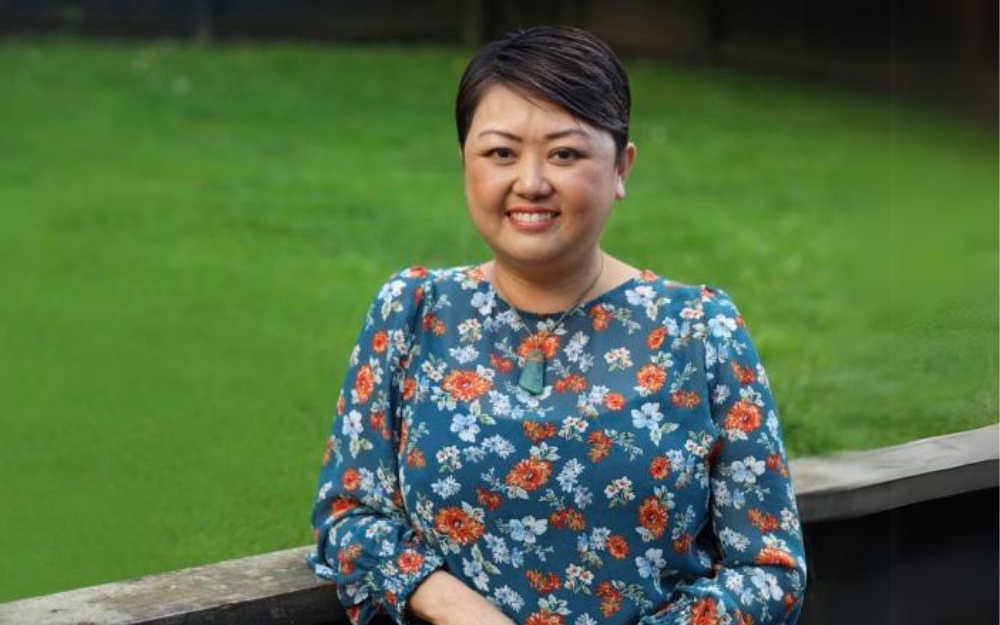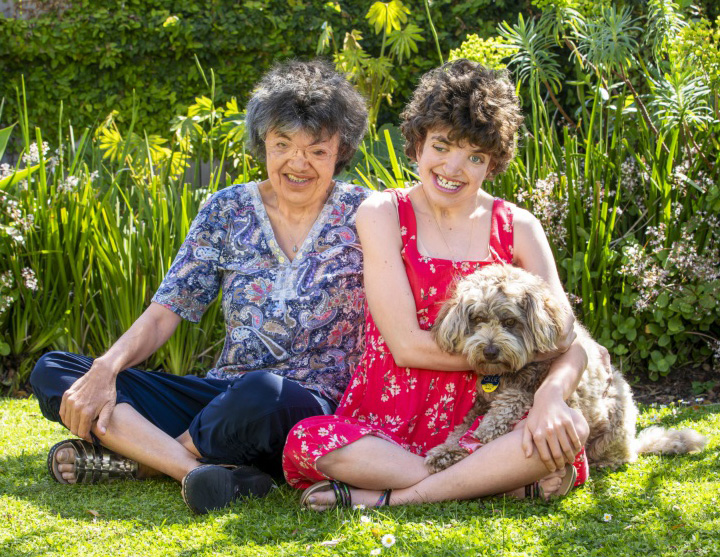Every March around her birthday, Kiwi nurse Amy Ng-Thomson walks to the peak of Auckland’s One Tree Hill, looks out across the city and reflects on how far she has come. Five years ago, she was wheelchair-bound and living on oxygen 24/7, before she received the gift of a life-saving lung transplant.
“I walk it each year because it’s a rite of passage, as well as a yearly tribute to my donor and their family, who selflessly agreed to donate their loved one’s organs,” she says. “The day I got called in to receive my new lungs, my sister looked at me and thought, ‘Amy doesn’t look like she’s going to last much longer.’ She told me this after my transplant.”
Today, the 41-year-old works in the operating theatre as a clinical coach, and as a senior nurse in the quality and risk department at Middlemore Hospital, where she’s passionate about providing the best healthcare. She’s able to go on dates with her husband Owen, 42, spend time with family and friends, and travel. Most importantly, Amy’s finally able to breathe.
“I was 24, married and in my third year of nursing when I couldn’t figure out why my hands had got really puffy,” remembers Amy. “I needed my wedding rings resized. My shoulder and knee joints were also really painful.”
Husband Owen’s got his wife back.
She was diagnosed with the rare and chronic autoimmune disease scleroderma, which meant her immune system was causing her body to mistakenly attack itself. Amy hadn’t ever heard of the condition and she jumped on Google.
“That wasn’t the best idea because I saw the worst-case scenarios and cried my eyes out. It’s not very common and I couldn’t understand why I had it. No one in my family does. I tried three different immunosuppressant medications before we found the right one, and my joint aches and swelling went down.”
Although she felt much better, Amy believed her illness would one day get worse and so she decided to book in travel with Owen. They planned short trips to China, Southeast Asia, Europe, Egypt and Turkey, and had the time of their lives.
When she returned from a trip to Asia in 2009, Amy started having difficulty taking deep breaths and went for respiratory tests that revealed she had lung fibrosis, which is scarring of the lungs. She was put on six months of IV chemotherapy, prescribed at a lower dose than cancer patients.
Despite her health struggles, Amy continued to work and it wasn’t until 2016, while working as a senior nurse in theatre, that she really started to notice her shortness of breath. Everyday tasks and walking became a challenge, so she applied for a desk job at the hospital.
“It meant I could sit down and it was easier to breathe,” says Amy, who’d developed an exhausting cough by the time she was called in for a transplant assessment in 2017.
“After a week of assessments, they said I needed a lung transplant, but I didn’t want to accept it because I wasn’t on an oxygen machine, crippled or in a wheelchair.”

The experience has taught the nurse to see things from a patient’s perspective.
But Amy, then 35, had high pressure in her lungs and was placed on the active transplant waiting list.
“I tried not to burst into tears because this would be my first operation and it was a major one,” she recalls. “I needed lungs the size of a 13-year-old, but in my understanding, in New Zealand, we don’t do retrievals from children, so I needed a smaller adult. It made my wait longer as I was not average size. Usually, people wait seven to nine months, but I waited 13.”
Amy’s health deteriorated to the point she was wheelchair-bound, and needed oxygen all day and night.
Then, while sitting with her family at the dinner table, Amy answered the call to tell her they’d found a donor. An hour and a half later, she arrived at Auckland Hospital.
Tearfully, she shares, “I felt a huge sense of peace, but also acknowledged that while we were hopeful, someone else was grieving. The retrieval team confirmed the go-ahead at 2am the next day. I’m super-grateful because in the donor family’s grief, they could still say yes to being kind.”
Amy underwent an eight-hour operation and stayed in hospital for six weeks. After nine months of recovery, she felt she could breathe again.
“My recovery was extremely hard work physically and mentally, but I’ve learnt more as a patient than I ever would’ve as a nurse and I’m a better one because of it,” she says.

Amy’s putting her new lungs to good use.
When Amy attended her first post-transplant concert in February 2019, she didn’t have to worry about her oxygen supply or navigating the crowd in a wheelchair. Despite needing medication for the rest of her life, she’s grateful to be able to walk thousands of steps some days, finally feeling freedom.
“I see myself as a guardian of these precious lungs and I’ll do what I need to protect them,” smiles Amy, who encourages people to talk about organ donation within their families. “I’ll always be thankful.”
Organ Donation New Zealand provides a 24/7 clinical service to health professionals, coordinates the process of donation and provides ongoing support for donor families. This Thursday, 30 November, marks the organisation’s Thank You Day, an opportunity to honour donors and whānau, and recognise all involved in the process of donation. For more information, visit donor.co.nz.

